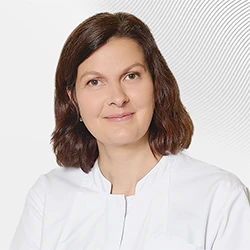An increasing number of parents are asking these questions. Is it good that we speak different languages with our child? At what age should I start learning a foreign language? Let's try to figure it out.
Many teachers and parents fear that learning a second language too early may not only delay the acquisition of one or both languages, but also harm the intellectual development of the child. More recent research shows that bilingual children go through the most important stages of speech development (first words, first phrases) at the same age as their "monolingual" peers. However, it should be borne in mind that if there is an intellectual decline in a child (congenital or acquired due to developmental disorders), early learning of a second language can actually increase speech difficulties and lead to general speech underdevelopment. Some researchers note that early learning of a second language slightly increases the risk of developing stuttering, which usually spreads to both languages. These researchers recommend starting learning a second language after age 5.
At the same time, numerous studies in recent years have shown a huge advantage for bilingual children at school. Bilingual primary school students show a better ability to focus on the task without being distracted by extraneous stimuli. A similar increase in the ability to concentrate, a sign of good working memory, is also inherent in adult bilinguals, those who became fluent in two languages in their early years. Perhaps this is because controlling and switching between two languages helps the brain hone and maintain its ability to focus, ignoring unnecessary, irrelevant information.
Another extensive study suggests that children who use two languages in their lives for the entire period from the age of five to ten years, on average, show better results on cognitive tests, concentrate better and resist distractions, make decisions easier and faster, and respond better to feedback. than their monolingual peers. When using functional MRI, bilingual children have a higher level of activity in the prefrontal cortex, which is responsible for executive functions. The same study notes that bilinguals switch freely from one language to another depending on the surrounding situation or context, rarely mixing languages and inserting individual words from another language.
Neurobiological studies have found that adult bilinguals have a denser gray matter of the brain, especially in the left hemisphere, responsible for most language and communication functions. This effect is stronger in people who learned a second language before the age of 5, and in those who have a better command of a second language. These data suggest that bilingualism from an early age significantly affects the very structure of the brain.
What conclusions can be drawn from this brief overview of international research data? Bilingualism has its pros and cons. Therefore, if the parents in the family speak different languages, then there is nothing wrong with each parent speaking to the child in their own language. Only this separation should be clear, the language of mom and the language of dad without confusion. If you live in a country with a different language or are planning to move, it would be nice if your child went to an international kindergarten and continued to speak their native language at home. It should be remembered that using a native language does not slow down the learning of another language, and if a teacher or educator can initially tell a child what is required of him in his native language, it will only be better. If you want your child to learn two languages at once, but only one language is used in the family and in your place of residence, then it will be easier for the child if, for example, a nanny or governess speaks English to him, rather than parents switching from one language to another. At the same time, if you notice a lag in the child's speech development relative to peers, consult with a specialist and, perhaps, it would be better to postpone learning a second language until the age of over five years.












.webp)





.webp)






